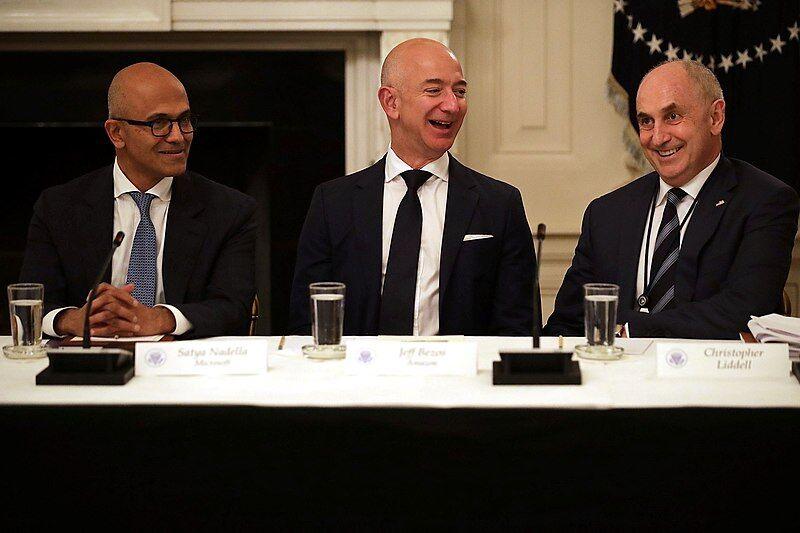In March, Amazon employee Chris Smalls organized a walkout at a warehouse in Staten Island protesting the company’s lack of pandemic-related safeguards for workers, detailing crowded conditions and a general neglect for the use of Personal Protective Equipment (PPE).
In a cruel display of irony, the company canned Smalls on the phony premise that he’d violated social distancing protocol.
As Smalls continued to use his voice to fight for his former coworkers, Amazon took every opportunity to discredit him; not long after his termination, a leaked memo from a meeting at which Jeff Bezos himself was present revealed the company’s plan to smear Smalls as “not smart or articulate.”
The company’s message to dissenters was clear: if you speak out, you will not only be unemployed, but ridiculed in the national press.
As wealthy and influential as he is, there’s evidently nothing Bezos fears more than his own workers, which is why he works so tirelessly to demean them into submission.
For no one can know that a man worth over $200 billion runs a company that leaves workers no choice but to urinate in water bottles rather than stop to use the restroom. The public can never hear the stories of pregnant women doing dangerous work against doctors’ orders in order to satisfy workplace demands. Testimonials of workers claiming they were subjected to “soul destroying” conditions must be quashed. And what cannot be erased will be diluted by pro-Amazon propaganda from the CEO’s personal newspaper.
These circumstances make it clear why the right to organize is a lifeline for the laborers of America. The ability to collectively bargain is what ensures workers are treated with dignity and respect.
Unfortunately, dignity and respect don’t factor much into Amazon’s bottom line. The company ignores any workers’ rights they find too cumbersome, their practices unchecked by the government they’ve bought out.
After all, bribery is much less expensive than it would be to provide employees with a living wage and proper working conditions.
With no one to stop them, Amazon has gone to dystopian lengths to suppress unions. In perhaps the most bizarre measure, Whole Foods, which is owned by Amazon, has installed heat mapping systems in stores to ensure workers don’t congregate and discuss plans to unionize.
In another instance, Amazon was slammed on social media after accidentally saying the quiet part loud in a job posting asking analysts to track “labor organizing threats against the company.”
And employees are being monitored even in the privacy of their own homes. The company has taken to spying on workers’ Facebook groups to ensure no pro-union sentiments are forming. No wonder workers report feeling “watched.”
At every turn, Amazon chooses to treat its workers as less than human. Not only are employees denied dignified working conditions but they are constantly degraded by systems tracking their every move. Amazon has sucked every last drop of power away from its workers, leaving them no avenue to demand better for themselves — unless they wish to lose the employment on which so many depend.
Still, make no mistake: Amazon is but a symptom of the hyper-corporatist disease rotting our country.
Seeing the monopolistic, anti-worker, small-business-crushing practices of Amazon should signal something deeply wrong with the company, and, even worse, with the economic and legislative conditions that enable it.
The pandemic has served as a reminder that the U.S. runs on the labor of its working class — and yet these are the same people this country fails over and over again. As economic inequality grows and the young become further disillusioned with American capitalism, it’s more clear than ever the U.S. needs to revolutionize how it defines and chooses to protect human worth.
Workers will not soon forget the elected officials that neglected their humanity, and no amount of corporate money will keep those seats safe forever.
Claire Sullivan is an 18-year-old coastal environmental science freshman from Southbury, Connecticut.







